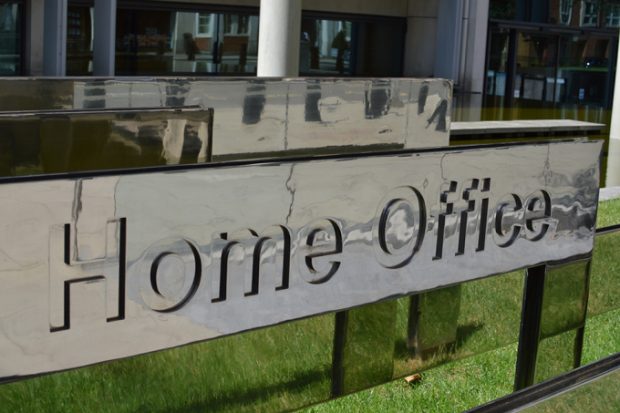This page was updated on 28 February 2020 and 17 July 2020 to take into account the proscription of additional right-wing terrorist groups. It was also updated on 3 June 2020 to reflect the implementation of the OIR recommendation for an increased role for MI5.
The Government's counter-terrorism strategy, CONTEST, responds to all forms of terrorism - whatever ideology motivates the terrorist and whatever methodology they seek to use. This fact sheet explains the threat posed by right-wing terrorism and our response.
Threat and response
- Since 2017, the police have disrupted eight terrorist plots related to violent right-wing extremist ideologies. The threat from right-wing terrorism has evolved in recent years and is growing. That is why this Government is taking urgent action to tackle it.
- In December 2016, the then Home Secretary proscribed the right-wing extremist group National Action (the first right-wing extremist group to be banned in the UK) and took further action in September 2017, proscribing Scottish Dawn and National Socialist Anti-Capitalist Action as aliases of National Action.
- In February 2020, the Home Secretary laid orders to proscribe Sonnenkrieg Division and recognise System Resistance Network as an alias of National Action.
- In July 2020, the Home Secretary laid an order to proscribe Feuerkrieg Division.
- As a result, being a member, or inviting support for these organisations is a criminal offence, carrying a sentence of up to 10 years’ imprisonment.
- Following the terrorist attacks in 2017, the joint MI5 and counter-terrorism policing Operational Improvement Review (OIR) proposed an increased role for MI5 and the Joint Terrorism Analysis Centre (JTAC) in extreme right-wing terrorism. As a result, MI5 have been working closely with CTP to increase their capabilities in detecting and countering RWT and became the lead UK agency for detecting and countering RWT in April 2020.
- While the threat we face from Islamist terrorism remains high, we have seen a worrying rise in the warped ideology of the far-right. Last year saw the conviction of a dangerous neo-Nazi, whose plot to kill his local MP as well as a police officer was shocking in its cold brutality. Fortunately, he was arrested and has been given a life sentence before he was able to cause harm to our society.
- In another sad case a white supremacist in Surrey attacked cars with a baseball bat before brutally stabbing a teenager, inspired by the livestream of the New Zealand mosque attack. He was jailed for over 18 years. Despicable acts like these only strengthen our resolve to tackle terrorism in all its forms.
- Our counter-terrorism strategy, CONTEST, addresses all forms of terrorism and no individual or group is free to spread hate or incite violence.
Proscription
- Proscription is not targeted at any particular faith or community, but is based on our assessment of an organisation's involvement in terrorism. 76 organisations are currently proscribed, alongside 14 organisations connected to Northern Ireland. The organisations proscribed seek to advance a variety of religious, ethnic, political and nationalist causes.
- A decision to proscribe an organisation must be based on a belief that it is concerned in terrorism as defined in the Terrorism Act 2000. A group may only be proscribed if it is necessary and proportionate to do so. This means an organisation can only be proscribed if it commits or participates in acts of terrorism, prepares for terrorism, promotes or encourages terrorism (including the unlawful glorification of terrorism) or is otherwise concerned in terrorism.
- Groups that may not meet the threshold for proscription are not free to spread hatred and incite violence as they please.
Countering right wing extremism
- The far right has absolutely no place in Britain. The British people overwhelmingly reject the prejudiced rhetoric of the far right, which is the antithesis of the values that this country represents: decency, tolerance and respect.
- This is why our Counter-Terrorism and Counter-Extremism strategies tackle the scourge of right-wing extremism head on.
- We are committed to stamping out extremism in all its forms and working with our international partners and internet companies to tackle extremist propaganda online.
Prevent
- The Prevent strand of our counter-terrorism strategy, seeks to tackle the influences of radicalisation and respond to the ideological challenge of terrorism. It also seeks to encourage debate and provide a credible counter narrative to terrorist ideologies.
- Like the overall counter-terrorism strategy, Prevent deals with all forms of terrorism, including Islamist and far-right, and does not focus on any one community.
- Individuals identified as vulnerable to being drawn in to terrorism can be referred to Prevent’s multi-agency Channel programme, to receive early intervention safeguarding support.
- Of the 561 individuals who were adopted to a local Channel panel in 2018/19, 254 were (45%) were referred for concerns related to right wing terrorism and 210 (37%) were referred for concerns related to Islamist terrorism.

